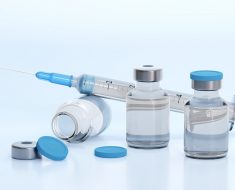"My injury isn't sex related."
"I don't smoke that much."
"These are the only medications I take."
Whether it's out of embarrassment, fear of being judged or simple ignorance, plenty of patients lie to their doctors. What a patient believes to be a simple fib, however, could be downright dangerous to their health.
Donald Trump’s one time doctor, Harold Bornstein.
Here are a few statements doctors wish their patients would stop saying in their office.
-This is not a sex injury.
"Patients often lie about medical conditions or diagnoses that arise during private or embarrassing situations, especially anything sexually related," says Dr. Sanjey Gupta.
"When patients lie, even if we confront them, it is difficult to provide them the proper care or to help ensure them a safe discharge," he said.
These situations can be worse when an ailment was caused by abuse, Gupta says. In these cases, the patient may not only be misdiagnosed and mistreated, but also return to a dangerous environment.
-I don't take any supplements.
Vitamins and supplements can skew test results and impact a doctor's diagnosis, according to Dr. Sunil Soodl.
Many herbal supplements or over-the-counter medications "have active compounds that may interfere with the medications that we are attempting to prescribe," said Gupta.
– Neither do my kids.
While accounting for supplements is important for treating adults, the issue is particularly important when it comes to diagnoses for children.
"Parents are unwittingly hiding something from us" because they "think it's normal," said Sood. "They don't mention the vitamins, probiotics or supplements when they list the medications their children are taking."
In reality, "none of these are necessary to give to children," he said.
– I don't smoke very often.
Patients don't just lie about smoking. They also underestimate how much they smoke, believing it's not enough to cause their other health problems, according to Dr. Puneet Gandotra.
"They may not feel that their heart disease or peripheral arterial disease is due to their habit," Gandotra said, noting that smoking is one of the leading causes of heart-related incidents.
"Patients may feel ashamed of their usage or do not want to discuss their habit" he said. "It is imperative to know this information to diagnose and treat and prevent further events."
– I don't have diabetes.
"Diabetes is a risk for complications from a surgical wound, and it could dictate which way you manage the patient's recovery," says Dr. Adam Bitterman.
This goes for any condition, whether it's diabetes, cardiovascular disease or an ankle injury.
"All should be openly and fully disclosed," he adds. "No piece of medical history is too trivial to mention."
– I don't eat that much.
"People tend to underestimate food consumption. We all do," said Christine Santori, a registered dietician and program manager for Weight Management.
Those who are trying to focus on their nutrition may disregard what they take in from smoothies, alcohol and other beverages, says Santori.
"They think it isn't important, but they may be missing those calories by just focusing on the food they eat."
– Everything is fine in the bathroom.
Unless specifically asked, he said, many women can feel embarrassed about leaks, having to wear pads or change their clothes several times a day.
"They often also feel there is no safe treatment," he said, particularly when it comes to the vaginal mesh, on which there is an abundance of false information.
"Women frequently say to me, 'I am not going to have that mesh surgery that is on TV all the time,' " said Finamore. "The truth is there are nonsurgical treatments as well as surgical treatment."
Newsday
Source: Read Full Article






